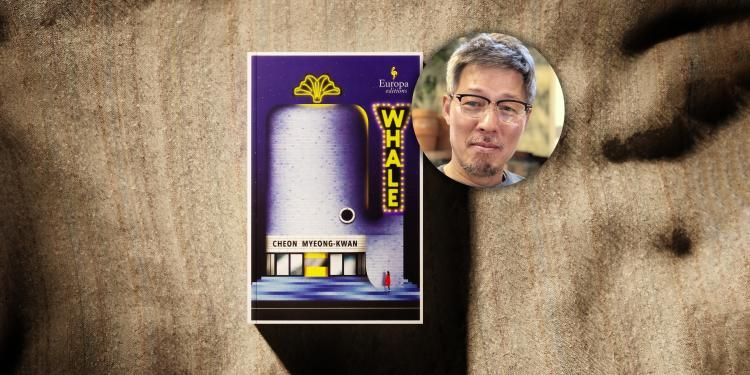
Chi-Young Kim interview: ‘The characters in Whale felt so familiar to me’
Shortlisted for the International Booker Prize 2023, translator Chi-Young Kim talks about the inspiration behind Whale in an exclusive interview

With Whale shortlisted for the International Booker Prize 2023, its author talks about how writing the book felt like taking dictation – and why a world without translated fiction is terrible to contemplate
Read interviews with all of the International Booker Prize 2023 authors and translators here.
How does it feel to be shortlisted for the International Booker Prize 2023, and what would winning mean to you?
Whale is my first novel. As I wrote it quite a long time ago, I’m stunned that it’s shortlisted for the International Booker Prize this year, and that makes it all the more exciting. The publication of Whale changed my life, and it feels like Whale is still a propulsive force in my life.
What were the inspirations behind the book? What made you want to tell this particular story?
The image of a very large woman was the genesis of this novel. I was drawn to the tragedy of her enormous corporeality and began plotting out the story. I recently watched Darren Aronofsky’s film featuring a 272-kilogram man, and I was surprised to learn that the film’s title was also The Whale; it too symbolizes massive physicality and loneliness.
How long did it take to write the book, and what does your writing process look like? Do you type or write in longhand? Are there multiple drafts or sudden bursts of activity? Is the plot and structure intricately mapped out in advance?
I wrote the first draft of Whale in three months and then revised it for three more months, for a total of six months. I typed it out, spending a long time on the first chapter. Because the first chapter encompasses the entire plot of the novel, the whole narrative had to be settled in that first chapter. After that chapter, I wrote the rest really quickly, like I was taking dictation.
Cheon Myeong-kwan, author of Whale, shortlisted for the International Booker Prize, 2023
© David ParryWhat I realised when I read John Updike’s Rabbit, Run aged 18 was that, for the most part, not much happens in life. And while that truth was disappointing, it was oddly a relief
Where do you write? What does your working space look like?
I work at home. There’s nothing special about my work space; it’s just a typical Korean apartment. I just happen to write at the kitchen table instead of the study because I can easily make myself coffee.
What was the experience of working with the book’s translator, Chi-Young Kim, like? How closely did you work together on the English edition? Did you offer any specific guidance or advice? Were there any surprising moments during your collaboration, or joyful moments, or challenges?
Chi-Young is a skilled translator who’s had a long career, so I was very happy that she was translating my novel. I trusted her completely and didn’t feel the need to share any particular thoughts. I don’t personally know her work since I don’t speak English, but my agent and others have all told me that it’s excellent—I’m thrilled and grateful.
Why do you feel it’s important for us to celebrate translated fiction?
It’s very important. Translating literature is critical work and if translators hadn’t undertaken that labour, I would have been someone who’d never had the opportunity to read Hemingway or Conan Doyle. It’s terrible to even contemplate.
If you had to choose three works of fiction that have inspired your career the most, what would they be and why?
Luo Guanzhong’s Romance of the Three Kingdoms. I read this book so many times when I was in school! I don’t remember any other reading experience that was so powerful and overwhelming. I can’t pretend to understand how this book affected my consciousness and sensibilities, but I can’t deny this book’s literary influence on me as a fiction writer, many years later.
John Updike’s Rabbit, Run. Before this, the books I read when I was young followed remarkable lives. Stories about adventure and romance, hardship and adversity, struggle and triumph. What I realised when I read this novel at 18 was that, for the most part, not much happens in life. And while that truth was very disappointing, it was also oddly a relief.
Charles Bukowski’s Post Office. I was already middle-aged when I read this book for the first time. I read it at a very difficult time, personally. Chinaski, the weary protagonist, is also going through a hard time. Strangely, though, I felt happy while I was reading it. Setting aside its literary significance, it was because I felt I would be able to bear it all, no matter how difficult, if I could look at the world through Bukowski’s eyes - if I could arm myself with Bukowski’s gaze to stand up against the world - and be accompanied by alcohol, too.
Chi-Young Kim

